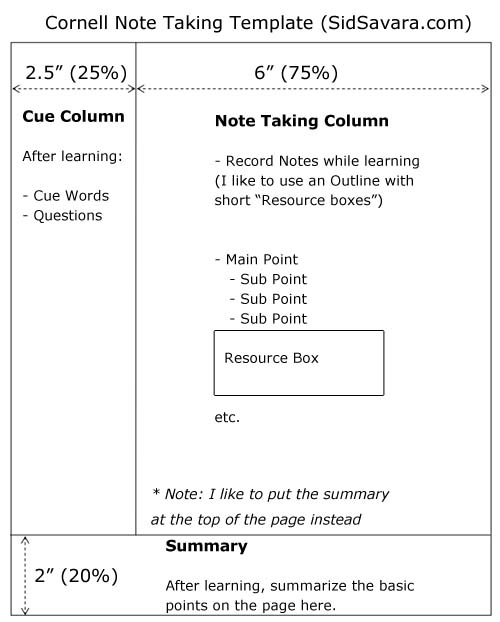Visual Notetaking
Reading and note-taking
Reading and Note-taking online resources from UNSW
Effective Reading
Lengthy reading lists for courses and essays can be frightening, particularly when the subject is unfamiliar. This guide assists with reading strategies you will find helpful.
Reading for Understanding: The SQW3R Method of Study
Reading is one of the core activities of study. You need to be able to understand what you read and to be able to recall the main ideas when you need them. You can use the SQW3R method to improve your comprehension, to remember a reading for tutorials, seminars or to revise for exams.
Note-taking: an introduction
An outline of effective note-taking strategies to help you get the most out of lectures and readings. The guide suggests procedures such as symbols and abbreviations, diagrams and note cards.
Effective Note-making from Written Text
A simple method to use when you are making notes from any written sources of information.
Selecting Information
When you select material and information for your assignments, it should never be used indiscriminately should be a continual evaluation process occurring. This guide features a list of questions you should ask yourself when examining information.
Revising
Five powerful approaches to revision:
-
Retrieval Practice
-
Questioning and Elaboration
-
Concrete Examples
-
Spaced Practice
-
Interleaving
Rate of Forgetting with Study/Repetition

Note taking
There is no single way of taking notes. Browse these resources to find what suits you.
- Tips on how to organise the information you've read into a good set of notes (State Library of Victoria - Ergo)
- Ideas to help you effectively take notes in class (Dartmouth)
- Note-taking (University of Melbourne)
- Learn to take better notes - 3 note taking strategies (Sid Savara)
Cornell note taking template
Here is an example:

Another example:

Or you can use it like this:

Cornell note taking

Cornell Note Taking
Subject guide created by

contact Catherine Morton